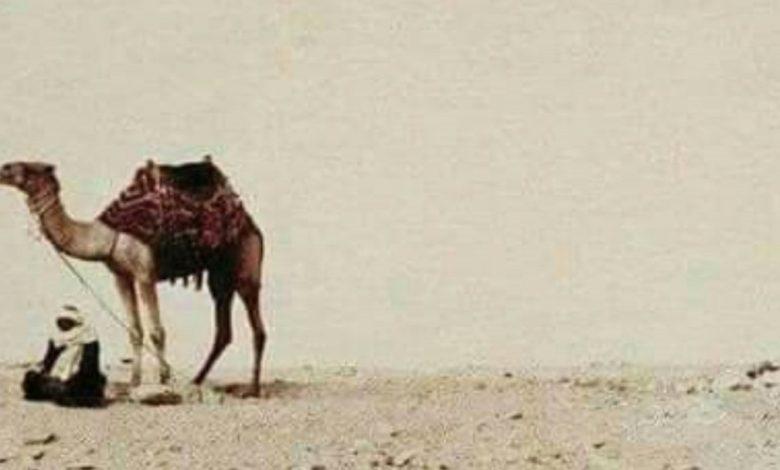Nasīhatu Ahli Az-Zamān authored by Shaykh Mujaddid `Uthmān Dan Fodio rahimahullāh 20
Halqah Series: Episode 73

SHARH
“Nasīhatu Ahli Az-Zamān” (020)
بسم الله الرحمن الرحيم
الحمد لله رب العالمين
والصلاة والسلام على من بعث رحمة للعالمين
وعلى آله وصحبه أجمعين
Assalāmu Alaykum Warahmatullāh Wabarakātuh.
Beloved brothers and sisters on the platform.
We are all welcome to this morning’s session of the Halqah.
We ask Allāh to make it beneficial to is all, āmīn.
We will be continuing with the Commentary of the excellent corpus “Nasīhatu Ahli Az-Zamān”
Which is the authorship of the Imām and Mujaddid, Shaykh ‘Uthmān Dan Fodio (rahimahullāh)
We are to continue from the next Chapter which he called;
تحذير الناس من الإنكار على الناس إنكار الحرام على الأمور التي اختلف العلماء في حكمها
“Cautioning People against Reproaching Others, the Sort of Reproach that is levied on Harām things When they Do things that about whose Rulings the ‘Ulamā differed”
Know, o beloved Brother/Sister, that this Topic is built upon a Qā’idah among the Qawā’id of Fiqh
لا إنكار في مسائل الخلاف
“No reproach is levied against Matters upon which there is Difference”
This Precept is mentioned by many of the Fuqahā in the books of Qawā’id
And in Al-Furūq, the Mālikī Imām Al-Qarāfī – rahimahullāh – expounded on it immensely.
We shall make commentaries Inshā Allāh in a way that is detailed on this matter aside what the Shaykh himself expounded.
He said, may Allāh be merciful to him,
فأقول وبالله التوفيق
“I say
and success lies with Allāh”
فاعلموا يا إخواني أن مسوِّغ الإنكار على الناس شيء عسير بل متعذر إذ قال الشيخ عز الدين بن عبد السلام
“So know, o brothers of mine, that that which permits the Reproaching of wrong deeds upon people is a very difficult matter to attain. This is because the Shaykh ‘Izzuddīn Ibn ‘Abdissalām said;
الإنكار متعلق بما أجمع على إيجابه أو تحريمه. فمن ترك ما اختلف في تحريمه، فإن قلَّد بعض العلماء في تلك فلا إنكار عليه إلا أن يقلده في مسألة ينقض حكمه في مثلها، فإن كان جاهلا لم ينكر عليه، ولا بأس بإرشاده إلى الأصلح. وإنما لم ينكر عليه لأنه لم يرتكب محرّما فإنه لا يلزمه تقليد من قال بالتحريم ولا بالايجاب. انتهى
“Reproaching a deed is dependent upon matters upon which there is agreement on its Obligation or Forbiddance. Whomsoever abandons a deed upon which there is difference on its forbiddance, if it is known that he was following thereby some ‘Ulamā in that, then he must not be reproached. Except if he was emulating him (the Ālim) on a matter whose ruling does not apply entirely. If then he was an Ignorant, he shouldn’t be rebuked but what is right is to direct him toward that which is best. And he is not to be reproached because he hadn’t trampled on a deed that is Harām since he wasn’t obliged to follow the position of either of the Scholars
I say – and Allah knows best – The Mujāhid Imām ‘Izzuddīn – rahimahullāh – posits here that only matters that relate to Obligation and Forbiddance should be levied a reproach
that said it was Harām or that said it was Wājib”
This is because that which is Mustahabb was optional in the first place
and that which is Munkar has no sin recorded for its doing.
Then he explained that those matters of Harām (Forbiddance) that were differed upon should not also be levied against if the person doing it was by so doing, emulating the Fatwa of an ‘Ālim
But if it was a Jāhil (Ignoramus) who didn’t even have a knowledge of whether it was differed about, then he should be directed to that which is best
Shaykh ‘Uthmān Dan Fodio – rahimahullāh – said…,
We shall Inshā Allah pause here for the week as it is time
Bārakallāhu fīkum
Jazākumullāhu Khayran
Assalāmu alaykum Warahmatullāh Wabarakātuh
14th Rabīu’ Al- Awwal 1439H
(03/12/2017)
📮 *IslamNode*
🌿🌿🌿🌿🌿🌿🌿🌿🌿




